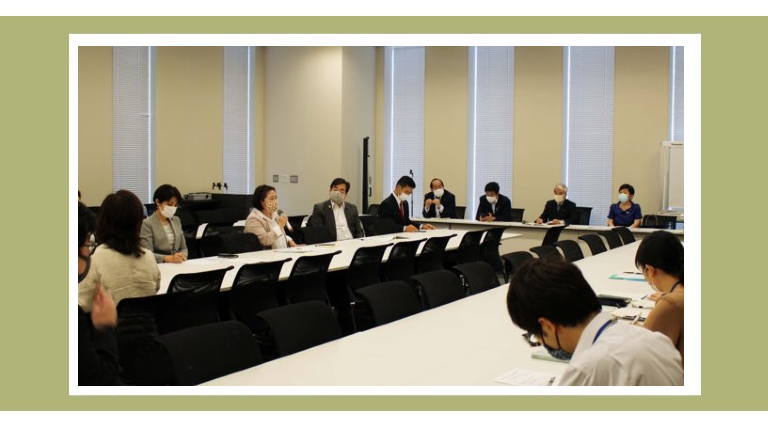On May 24, the “the Parliamentary League for Animal Welfare Conference” was held at The House of Representatives 2nd building of Japan.
Hidehisa Otsuji thanked various animal protection organizations and lawmakers for supporting the “Animal Protection Law”. He talked about the implementation of the revised “Animal Protection and Welfare Law” on June 1 last year and the enhancement of the commercial animal husbandry and custody standards effective on June 1 this year, and the mandatory chip implantation that will take effect next year. The spokesman of the Minister spoke on animal protection and responded to questions raised by lawmakers and animal protection organizations.
The first question is about a 3.5-meter-long reticulated python raised by a Yokohama man and finally found in an attic in Ibaraki Prefecture after being missing for 17 days.
The man asked Ibaraki Prefecture to return the reticulated python to him, and then the Yokohama City Government arranged the return through an animal dealer in Ibaraki Prefecture.
The Ministry of the Environment is pleased to see that the reticulated python is safe and sound, and returned to the owner through appropriate channels. At the meeting, the spokesperson of the environmental protection group took this incident to express dissatisfaction with the unscrupulous means of animal dealers.
Vice-chairman Yasuko Komiyayama and a number of congressmen expressed concern about this and asked the Ministry of the Environment to respond.
The focus of the research meeting is the “Maximum Per Capita Number of Managed Animals” specified on page 21 of the “Commercial Animal Feeding and Storage Standards” that came into effect on June 1.
Assuming that a pet shop has two employees attending, each person is limited to 20 dogs or 30 cats, and the maximum number of the shop is 40 dogs or 60 cats.
However, according to the case on page 23 of the document, on some days, only one staff member manages 40 dogs, and on other days, one staff member and one part-timer manage 40 dogs (by definition, part-time only counts as 0.5 persons), which fails to meet the requirements. Benchmark requirements.
Shopkeepers usually arrange part-time employees to attend on holidays when there are many customers, resulting in fewer people attending on weekdays.
Members of the meeting immediately said that the description of the “Commercial Animal Feeding and Management Standards” was “difficult to understand” and “vague”, and the Ministry of the Environment only responded that there was a difference between the “full-time and part-time” benchmarks.
The epidemic has led to a sharp increase in the demand for pets, and the abandonment situation has deteriorated, and eventually the number of euthanasia has risen sharply. After Kenzo Fujisue raised questions about this, the Ministry of the Environment only responded that last year’s euthanasia data will be released at the end of this year.
The current Congress will end on June 16, and the bills to be considered are piled up.
“Commercial Animal Feeding Management Standards”: http://www.env.go.jp/nature/dobutsu/aigo/2_data/pamph/r0305a.html

